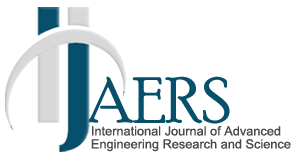Quilombola Communities in Brazil, aspects of Food and Nutrition Security – Literature review |
| ( Vol-9,Issue-1,January 2022 ) OPEN ACCESS |
| Author(s): |
Giovana Dias Lima, Paula Rayssa Lobato da Silva, Fabiana Costa Cardoso, Ana Paula da Silva Costa, Jairisson Augusto Santa Brígida Vasconcelos, Laura dos Santos Barros, Bárbara Vitória Monteiro Reis Augusto, Ana Júlia Melo da Silva, Luisa Margareth Carneiro da Silva |
| Keywords: |
|
food security, eating habits, food insecurity, quilombola. |
| Abstract: |
|
Introduce: The law nº 11.346, of 15 september of 2016, lays down that the power public should respect, protect, promote, inform and to evaluate the realization of the Human Right to Adequate Food. However, the quilombolas are vulnerable and suffer from discrimination by the institution. Objective: Survey articles from the last five years on food and nutrition security in quilombola communities in Brazil. Methodos: This is a systematic review of the literature with qualitative analysis, in which full articles published in the years 2016 to 2021. The collect of information was to realizate during October and November of 2021. Resultuts: In relation to food agriculture quilombola, observed little people to local produce, because there is rural exodus, which promotes flaws in local supply of food. Reduced consumption of food in nature and minimally processed and increased the consumption of the food processed and ultra processed. Observed that the quilombola population consumes less fish than beef, due to pollution of rivers and hunting practice, it is common in the quilombola population. The majority quilombola population live in insecurity feed, due to aspects of socioeconomics and environments, it is observed in all age groups. Studies show that it is four times bigger than commun population. Conclusion: A high prevalence of food insecurity was observed in this population, as well as a lack of intake of certain foods, such as fruits and vegetables. Furthermore, the absence of running water, distinct from sewage, per capita income and access to health services aggravate the situation. |
| Article Info: |
|
Received: 222 Nov 2021, Received in revised form: 10 Jan 2022, Accepted: 19 Jan 2022, Available online: 26 Jan 2022 |
|
|
| Paper Statistics: |
| Cite this Article: |
| Click here to get all Styles of Citation using DOI of the article. |
- Track Your Paper
- editor.ijaers@gmail.com
- ISSN : 2349-6495(P) | 2456-1908(O)



Advanced Engineering Research and Science